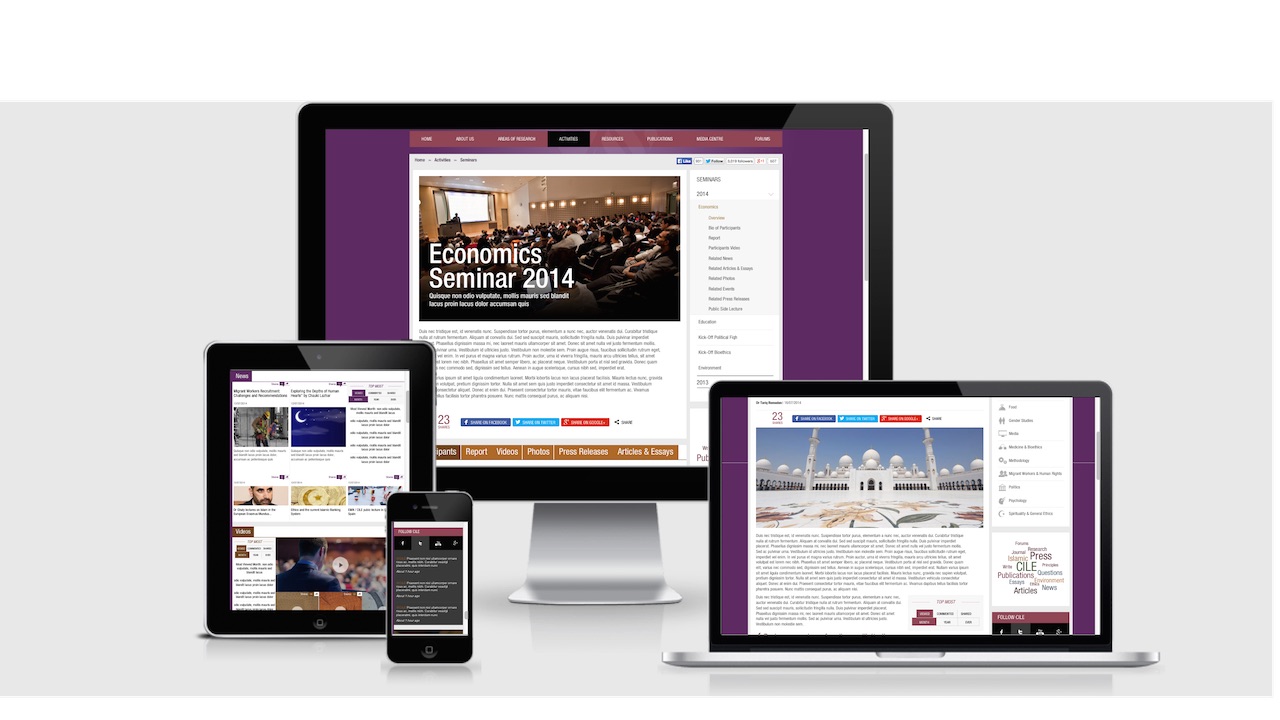A European campaign initiated and launched by SPIOR and the Rotterdam Municipality, in co-operation with Professor Tariq Ramadan
Forced marriages may seem to belong to the past, but actually still are a reality in European societies. Young people, both girls and boys, are being forced to marry someone their parents or family have chosen for them and are not being given the opportunity to say ‘no’. It happens amongst groups of different ethnic, cultural and religious backgrounds, also amongst Muslims. As far as Muslims are concerned, it is often thought – by Muslims and non-Muslims alike – that forced marriages are a part of Islam. However, Islam actually forbids forced marriages. A marriage is only valid according to Islam when both man and woman enter it of their own, free will.
For SPIOR, the Muslim umbrella organisation in Rotterdam, the Netherlands, the fact that Muslim girls were running away from home out of fear of being forced to marry, was the reason to start a project against forced marriages in 2004. The goal was the prevention of forced marriages by raising awareness about the issue, changing attitudes and promoting better communication between Muslim parents and children. To this end, meetings were organised with hundreds of young women, men and parents, also involving imams and scholars. Educating people about the Islamic view on forced marriages and choice of a partner in general was an important part of the project. The fact that Islam actually forbids forced marriages turned out to be an eye-opening message for many of the people involved.
The results of the project were published in a booklet with the same title: ‘Joining hands against forced marriages’ (2007). The booklet further contains information about the cultural background of forced marriages, about the Islamic view on marriage and forced marriages and about the relationship between marriage and the concept of ‘honour’. Also, the booklet provides a step by step plan for detection of force, taking actions and some advice for setting up preventative projects.
This issue is not unique for Rotterdam, or the Netherlands. That is why now SPIOR and the Rotterdam Municipality, in cooperation with Professor Tariq Ramadan (visiting professor on ‘Citizenship and Identity’ at the Erasmus University in Rotterdam and president of the think tank European Muslim Network), have started a European campaign against forced marriages. To this end, the aforementioned booklet will be translated into English, French, German, Italian and Spanish and distributed in the UK, Belgium, France, Germany, Italy and Spain. Of course, SPIOR can not do this alone. For this purpose, we will team up with Muslim organisations and (local) authorities in these countries, who will put the issue of forced marriages on the agenda in their own communities and in their own way. SPIOR’s experiences, as described in the booklet, will hopefully serve as means of inspiration for others.
The campaign will start with launch meetings in Rotterdam and several capitals:
14 May 2008 – Rotterdam
16 May 2008 – Brussels
19 May 2008 – London
21 May 2008 – Berlin
22 May 2008 – Madrid
23 May 2008 – Paris
26 May 2008 – Rome
For more information, please contact Marianne Vorthoren at SPIOR:
+31 (0)10 – 466 69 89 or [email protected]










Asalaam3laikum,
In regards to the Project, « Joining Hands Against Forced Marriages », may Allah bring promise to your efforts and reward you for your intentions to help the Muslims. I would like to get more information regarding this initiative, whereby it may be expanded to address the concerns faced at the grassroots level in Canada. Tariq Ramadan wrote, « We need national (and international) movement of local initiatives. » As such, I work with various youth organizations, such as the Muslim Student Associations at various universities and the Muslim Association of Canada Youth Centers. I believe the issue of forced marriages are unique per circumstance, but hold a lot of common elements that in the end result from the cultural practices and misinterpretations of Islamic teachings, which affects many of the youth in our communities. Yet the initiative by SPIOR allows understanding and change, and I would like to have the same European experience and learnings brought here in Canada.
Please advise how I can contribute to this effort for my Muslim brothers and sisters here in Canada.
Jazak Allah Khair,
Fayez
I think there is already done a lot to stop forced marriages, by the people themselves. People who´s parents brought this costum from the lands of origin have forced a break with it. What I find frustrating is that all this has to be struggled for in this way. It sometimes feels like the first generation is very selfish in trying to protect their way of life as they used to know it as much as possible, without offering their children real alternatives for becoming ´too western´.
I don´t think forcing people to marry is islamic. But we can not ignore that the pressure on young people to marry as young as possible has an islamic element too: parents want their children to marry to prevent them from non-marital relationships. This certainly doesn’t just count for girls. So the question is, how can muslims guide their children to healthy islamic relationships without forcing them.
I want to share this Moroccan-Dutch song with you (the clip speaks without the words..) about how a loving father forces his daughter to marry because he wants what’s best for her:
http://www.youtube.com/watch?v=iBrEKLfcV7g